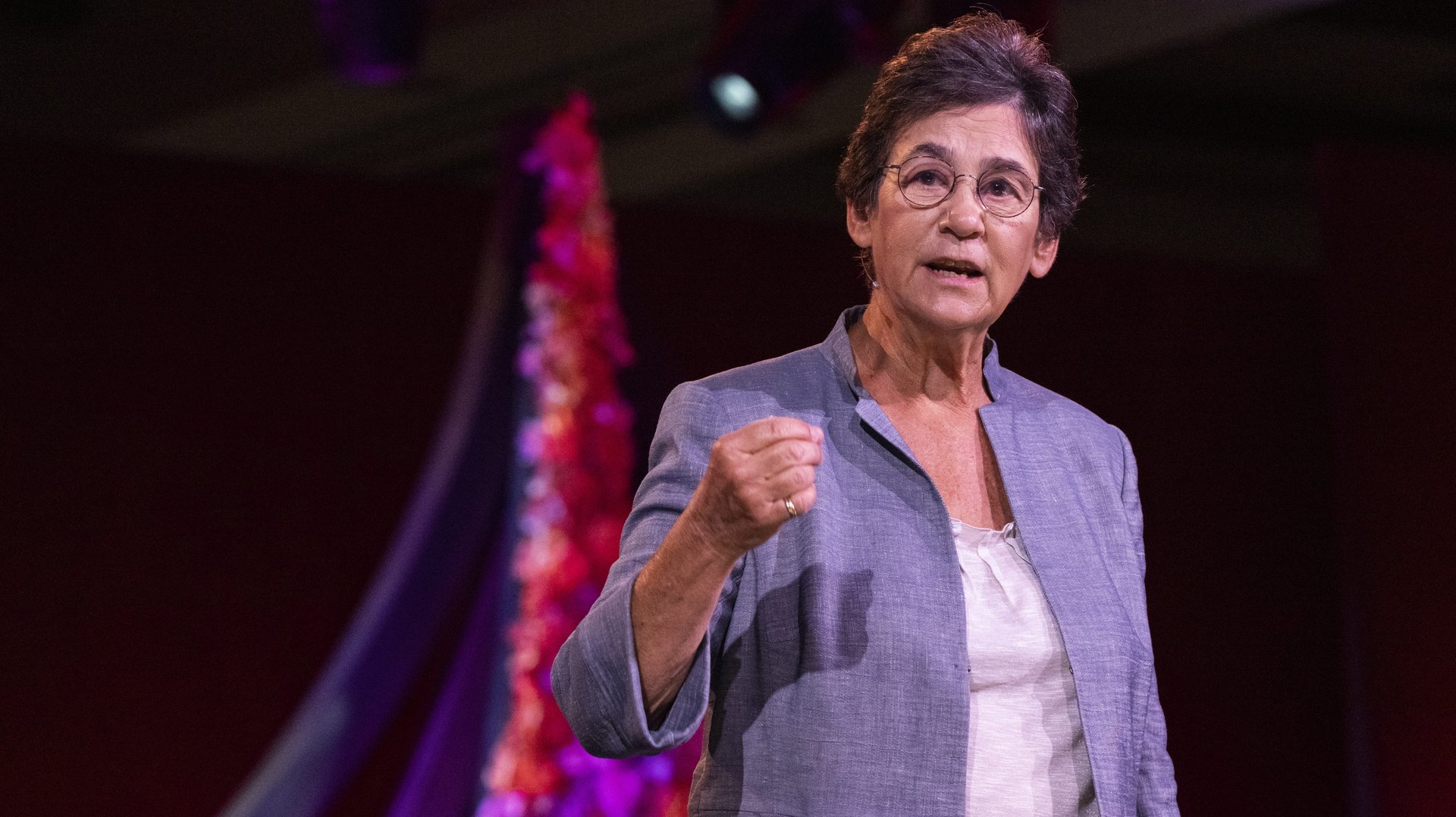The lawyer who saved Roe v. Wade says US abortion rights will soon disappear
Update: On June 24, 2022 the US Supreme Court voted to overturn Roe v. Wade, writing that “the Constitution does not confer a right to abortion.”


Update: On June 24, 2022 the US Supreme Court voted to overturn Roe v. Wade, writing that “the Constitution does not confer a right to abortion.”
At a conference last week, Kathryn Kolbert, a litigator who has argued two abortion cases before the US Supreme Court including the landmark, Planned Parenthood vs. Casey in 1992, said it’s time to give up on Roe v. Wade.
Speaking at the TED annual women’s summit, Kolbert, who has spent her entire career defending women’s rights, said it’s “likely” the country’s highest tribunal will effectively cancel women’s reproductive freedoms when they decide on two separate cases in Mississippi and Texas next year. Five of the nine justices—Brett Kavanaugh, Amy Coney Barrett, Neil Gorsuch, Clarence Thomas and Samuel Alito—are expected to uphold Mississippi’s abortion ban after 15 weeks of pregnancy and in so doing, set a precedent for curtailing abortion rights in other states.
“We’ve been saying for five decades “save Roe, save Roe, save Roe.” That strategy is no longer feasible,” Kolbert said. “Give it up.”
If Roe goes away, what comes after?
The cancellation of abortion rights in the US may be inevitable to Kolbert, but it doesn’t mean we should give up fighting for civil liberties, she was quick to note. Before a largely pro-choice audience at TED, Kolbert called for a “badass social justice movement” that hinges on electing officials who will uphold family rights in every jurisdiction.
“To paraphrase [the activist folk singer] Joan Baez, the best antidote to despair is action,” she explained. “This is a time to be angry, but anger is not enough; we need to be strategic. Our opponents have been politically active since the days of Roe and we haven’t. We love policy but we don’t like to get involved in the messiness of political campaigns, and we’ve got to stop that.”
Kolbert tells Quartz that she knew women’s rights were in jeopardy the moment Donald Trump was elected. “The irony, of course, is that we were so close to being able to get through electing the first woman president, who would have guaranteed these rights,” Kolbert said. “That felt extremely difficult.”
“Too many people want to think that there’s no difference between the parties and that it won’t make any difference whether you vote or not vote,”she said. “The reality is people’s lives have been dramatically altered as a result of the outcome of both the presidential election and the elections at the state level. And so we need to focus very carefully and very strategically and ensure that we elect champions for choice at all levels of our government.”
But will Americans embrace a strategy based on incremental wins? “The craving for instant results and a craving for a compromise—neither is going to work going forward,” Kolbert argued. “It’s going to be a long haul, but it can be done because Americans feel passionately about preserving limited liberties.”